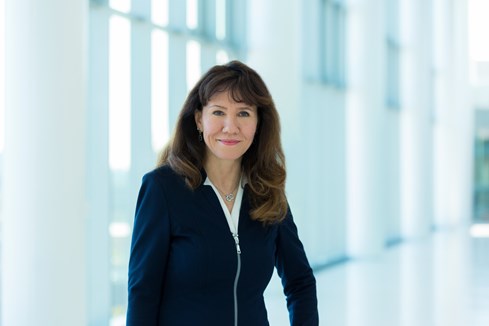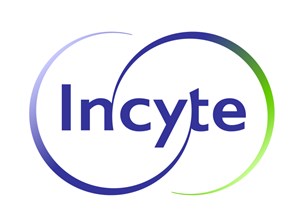Lawyers and laboratories might not be an obvious pair, but for attorneys like Maria Pasquale, there couldn’t be a better combination. Here, the GC at Incyte gives us her insight into working in-house in the pharmaceutical industry.
How did you end up studying biochemistry and going into a scientific research career?
I grew up fairly modestly in The Bronx, New York. I always had an interest in science and I also liked to write. I wasn’t really sure what my career path should be. Science seemed, at the time, to be more of an area that I felt would lead to a career, while writing was less obvious. And I really enjoy research. I think it’s fascinating because the more you learn about certain concepts – cellular technology or DNA technology – the more you realise how little we know. There’s so much to understand. I had a natural curiosity about sciences, and that’s what led me to biochem and to be in the lab. I did six years of lab work.
“I learned I could be in the lab in the day, and in law school at night. It felt right.”
What prompted your decision to go to law school?
I didn’t have lawyers in the family. I didn’t know much about what lawyers did other than what I saw on TV when I was a kid. As I got older I realised there were good opportunities to combine science and law, like becoming an IP lawyer. I learned I could be in the lab in the day, and in law school at night. It felt right. I realised it was an opportunity I could take for myself. I decided I was going to support myself, and go to law school at night. I was grateful I could do that. They were the quickest four years of my life! I enjoyed school, so the time flew by.
Did you have any moments of doubt about your decision?
When I made the financial commitment I told myself: I’ll give myself one year. If it doesn’t seem a good fit, I won’t be worse off. I will still have learned something. Once I started I realised two things: one was that I really enjoyed it. The second was that even if I didn’t end up in IP, there were so many areas of law I could explore. As it turned out, my natural inclination to science never changed so I never considered other types of law.
“I was working on cases with cutting edge scientists and Nobel prize winners. It was a great combination.”
You then went to a boutique law firm as an IP lawyer. Can you tell us a bit more about that?
I knew I wanted to stay on the cutting edge of science. Pennie & Edmonds was a great boutique IP firm in New York. It was a wonderful experience. I was working on cases with cutting edge scientists and Nobel prize winners. It was a great combination. When I worked on DNA technology, I had physically done a lot of the techniques myself. And I was now working with scientists to explain how their inventions needed protecting. I found it fascinating.
What made you decide to go in-house?
I found a small company called Celgene, which wasn’t well-known, at the beginning of expanding its technology. From a personal standpoint this was an inflection point for me. I was raising children, trying to see if partnership was right or if I wanted to be more closely focusing on a company with particular technologies. My mother died of cancer at 44, and I wanted to be a part of cancer research. Celgene was a little company in New Jersey. It felt right. I knew it was time to switch. I was the first lawyer there. We did wonderful science and invented a number of important and successful cancer drugs.
Was it hard to adapt? Do you think your grounding in IP law was advantageous?
I went from having all the services you would expect. I had a window facing the Empire State Building and files brought to me whenever I needed. Then I go into a smaller company and I’m the lawyer, the administrative assistant, and the paralegal, and I’ve got a small, windowless office. But I never regretted it for one minute because of the culture and the research we were doing.
“I went from being part of a small, growing company to a global multinational in the US operating in over 40 countries – from a couple of hundred staff to ten thousand!”
Your career seems to be defined by long periods at each of your employers – it took you ten years to move in house, and another 17 years to move from Celgene to Incyte, where you are today. Is this a better approach than jumping around every few years?
It has been advantageous. I don’t necessarily advocate one approach or the other. The reason I stayed at the law firm was that I learned different areas of law, both litigation and patent prosecution. You should continue to grow in a role and feel you are contributing.
That’s the reason I stayed with Celgene for so long too. I would advocate for it in that situation – I went from being a part of a startup to the person who hired the team and built the contract department. I went from being part of a small, growing company to a global multinational in the US operating in over 40 countries – from a couple of hundred staff to ten thousand! From that perspective, I never felt like I was in one place for a long period. I joke that it was like working for six companies because of the changes. I’ll only advocate for staying in one place if it feels like you’re continuously growing, learning and being challenged. If you’re not doing those things, you should explore your opportunities.
“It takes an average of ten years and often more than $1 billion for one new medicine. You can’t be in it expecting quick wins.”
How does the GC position at a pharma company differ to that of other companies? What’s the most challenging aspect?
I think it’s a really challenging area of law because it’s a highly regulated area. The development of new compounds takes a long period of time, so there’s not much instant gratification. The sector is also often misunderstood – [the misunderstanding being] that it’s focused on high drug prices. I understand completely, it does cost a lot. Medicines can be expensive, but it’s not well understood how much time and money go into the drugs. It takes an average of ten years and often more than $1 billion for one new medicine. You can’t be in it expecting quick wins. I’ve only worked for companies working on cancer or serious diseases. It’s gratifying to have success developing a compound which is saving or prolonging life, or in some way, making a patient’s life better.
What do you look for when recruiting for the legal team?
It’s what’s on paper that gets you in the door: how relevant their experience is or what qualifications they have. Once they’re in the door I’m assuming they could do the job. I’m then interested in their enthusiasm. Have they spent time trying to show something about why they want to work for the company? Is there an actual connection as to why this is the place they want to be?
“There are a lot of laws and guidelines that change a lot in the industry. I don’t think the regulations are prohibitive, but the interpretations can be challenging.”
What is your number one aim at Incyte? What milestone would you like to achieve?
I joined this company as I feel they have an exciting future. They already have great science. They put a lot of resources into research. I felt my experience would contribute to getting them to the next level of success and size as they develop new drugs. If I had to name one thing I want to achieve – I want to help them navigate the complex regulations that impact companies that are doing such high quality work. There are a lot of laws and guidelines that change a lot in the industry. I don’t think the regulations are prohibitive, but the interpretations can be challenging. You need to understand the industry and the purpose of the law to provide the best advice. For me the most important thing is to help the company understand and manage them, because our mission is excellent.
Our research has found that one in three GCs at the S&P 500 companies are female. What is your reaction to that? Is the figure heartening or disappointing?
I think it is encouraging. Although, when I was in law school half of my class was female, so you could say half should be female. I do believe there is more attention to diversity nowadays. I think that the capabilities of women being GCs is proven. The fact that up to one third of the GCs at the S&P 500 are women and that it is probably trending upwards – I’m encouraged.
Have you noticed a difference in mobility for women between in-house and private practice?
Yes, in private practice it was more stratified: first, second, third year. Those are stricter categories. I find in companies that you may get hired at a superior level, but it is then less rigorous or constrained. In the next year you are not that level plus one year. You have more ability to accelerate your role and responsibilities and potentially find growth opportunities in a company. In a law firm you’re more stratified by year.
How important is it to you personally to promote diversity?
I will only work with firms with the right expertise, so if I have a choice between two teams or firms, and they have equivalent expertise but one is more diverse, I will go with the more diverse team. It’s both a combination of wanting to promote diversity, and the fact that that team would provide more diversity of thought.
“Don’t put so much pressure on yourself to figure out what you’ll be doing in ten years.”
What’s your work/life balance like? What do you do to unwind and maintain balance between the two?
I think it’s important to differentiate between how much work people do and how much flexibility they have to work. Most people don’t mind doing a lot of work if they enjoy it and feel challenged, even if they’re balancing it with a full life. Flexibility is key. Some people come in earlier or leave later.
What I like to do in my spare time is to get on my bike and ride 40 miles or longer! I find it meditative. You get to explore places – I like to bike into different shore towns. I also dabble in writing, but I can’t say I do as much I would like. It’s still important to me. I’d like to publish some children’s books in the future.
What advice would you give to anyone reading this?
Don’t put so much pressure on yourself to figure out what you’ll be doing in ten years. People put too much pressure on what success will look like. That’s a mistake. To me it’s the biggest concern for young people. They feel, ‘Oh my gosh, I won’t be successful if I’m not attempting to go straight from A to B, and I need to plan for being partner or general counsel!’ I’m not saying those things aren’t important, but it’s important to find something you enjoy and do well, and let the rest unfold. Doors will open to you. I really believe that.

